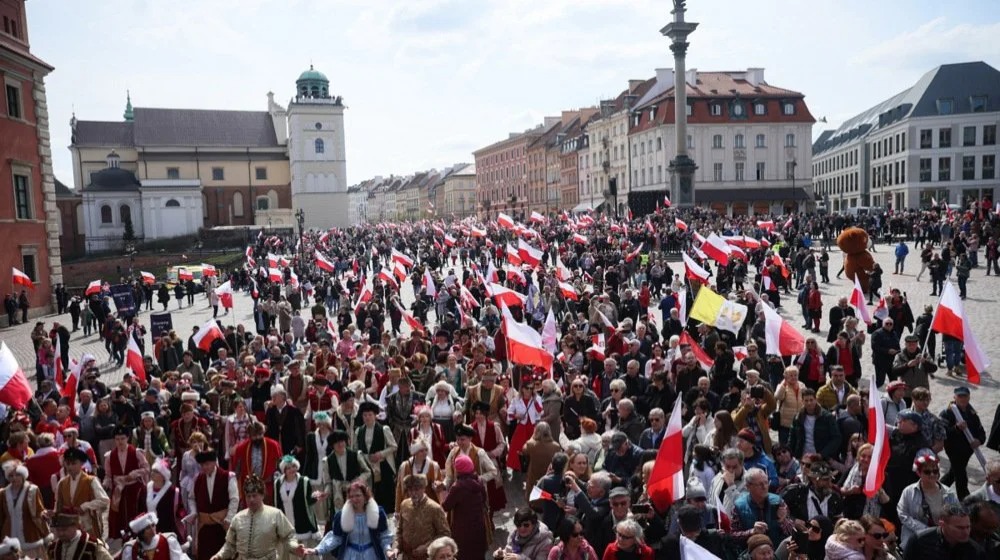
India and Pakistan have a history of bloody wars, but now the world should fear what might come next.
Conflicts between India and Pakistan have reached a new dangerous phase after the Indian army launched a military operation called “Operation Sindoor.” The attacks followed the massacre in Pahalgam, a part of Indian-controlled Kashmir, where terrorists killed 26 tourists, mostly men, in front of their families. India accused Pakistan of supporting the terrorist groups responsible for the attack, an allegation Islamabad firmly denied.
The escalation of unrest in Kashmir comes at a time when distrust between India and Pakistan has only grown over the years, with virtually no diplomatic efforts to bridge the divide.
The world must be concerned about the growing tensions between these nuclear-armed neighbors who remain in a prolonged state of hostility.
India claims its missile strikes were a response to the brutal murder of tourists near Pahalgam in Kashmir, when militants opened fire on April 22, killing 26 people and injuring dozens.
India accused Pakistan of harboring, arming, and protecting militant organizations whose fighters have infiltrated the nearly 500-mile-long border in Kashmir to attack the state.
Pakistan has rejected these accusations, claiming it only supports the Kashmiris' right to self-determination. However, this time the situation is different, as tourists—previously mostly spared by militants—became targets.
Only men were killed
And only men were killed—some executed in front of their families.
It is significant that India named its retaliation “Operation Sindoor.” Sindoor is a red powder worn by women in the parting of their hair, symbolizing marital status. In the attack near Pahalgam, many women were left widowed.
Days after the killings, Indian Prime Minister Narendra Modi stated: “I tell the entire world, India will identify, track, and punish every terrorist and their accomplices. We will chase them to the ends of the earth. The Indian spirit will never be broken by terrorism. Terrorism will not go unpunished. We will do everything to ensure justice is served.”
Other forms of attacks and threats
India intensified its diplomatic offensive by expelling military advisers and suspending a key water-sharing agreement known as the Indus Water Treaty.
Pakistan responded. Prime Minister Shehbaz Sharif chaired a National Security Council meeting, adopted reciprocal measures, and emphasized that the suspension of the water treaty would be considered an act of war.
Tensions between the two nuclear neighbors, who have decades of animosity and distrust, have reached their peak.
India and Pakistan have fought several wars and skirmishes since gaining independence from Britain in 1947. In 2019, the two countries were on the brink of war. A suicide bomber attack on a military convoy killed at least 40 Indian soldiers.
India accused Pakistan of sheltering Islamist terrorists and carried out a limited airstrike on Pakistani territory.
The Kargil War in May 1999 led to a situation often described as a nuclear flashpoint.
The Pakistani military had secretly occupied Indian positions along the Line of Control (LoC)—the de facto border between Indian- and Pakistani-administered Kashmir.
War broke out, and Pakistan sought help from U.S. President Bill Clinton to de-escalate the conflict. The Washington Agreement was reached, and then-Pakistani Prime Minister Nawaz Sharif agreed to withdraw Pakistani troops and restore the integrity of the LoC.
The “United Jihad Council,” an umbrella group of extremist organizations, rejected the agreement and decided to continue fighting against the Indian state.
The 2008 Mumbai attack
166 people were killed by ten terrorists belonging to the group Lashkar-e-Taiba (LeT), suspected of having close ties with the Pakistani intelligence agency ISI.
The killings lasted four days at prominent locations in Mumbai. The only surviving attacker, Ajmal Kasab, was captured and, before his execution in 2012, stated that the attackers were members of this terrorist group.
There is a significant trust deficit between India and Pakistan. India claims to have provided ample evidence of terrorist groups operating from Pakistan and attacking the Indian state and its people.
Pakistan denies this, claiming it is itself a victim of terrorism.
Kashmir as the epicenter of unrest
For decades, Kashmir has been a vortex of violence, conflict, killings, and abductions. The insurgency movement that began in the late 1980s lasted for decades and received support from Pakistan.
Pakistan maintains that Kashmir remains an unresolved issue.
The latest incident could soon become a flashpoint of conflict, and the world should be concerned about the potential consequences.





